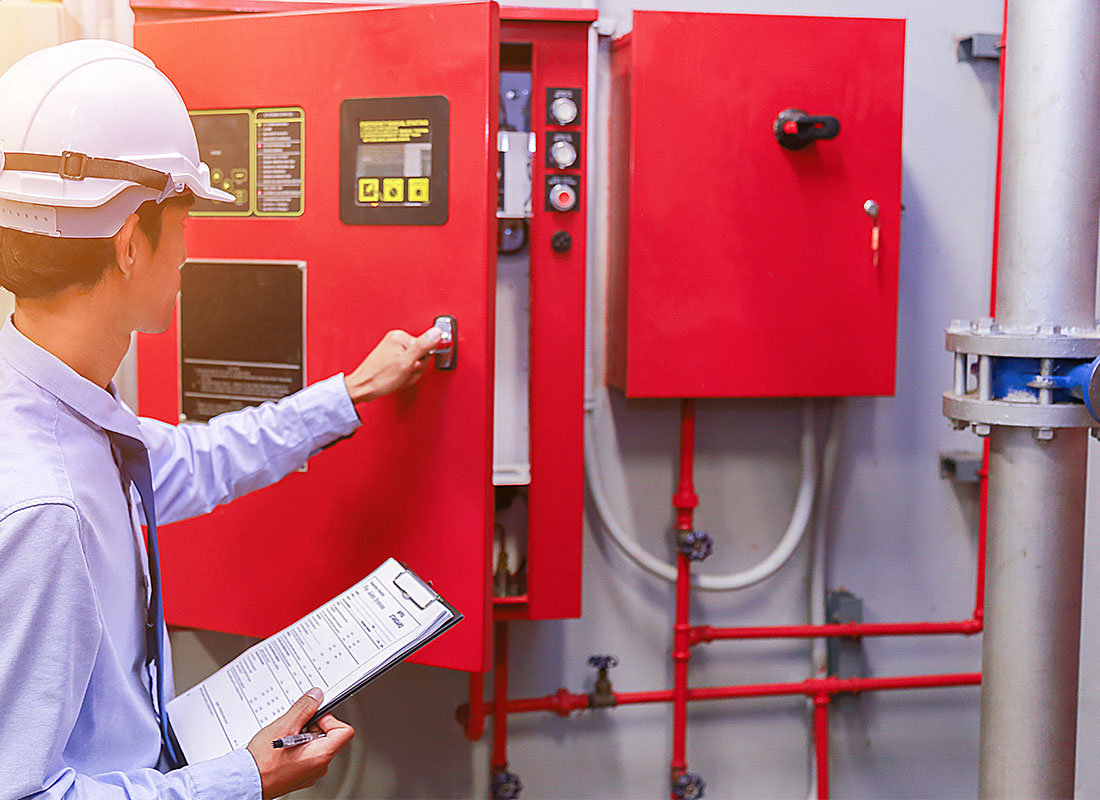The Value of a Safety Control System
Safety control systems, which include a broad range of different systems depending on application, industry and authority having jurisdiction (AHJ) are generally a separate and independent layer of protection from the basic process control systems (BPCS). This allows the process to remain in a safe state in the case of a failure of the BPCS. Telluride engineering can help design both, taking a formal process safety and risk-based approach to them, ensuring they remain independent layers of protection without credible common-cause failures. See our other safety and control system skills which augment and complement our safety control system design skills.
–
Safety Instrumented Systems (SIS)

Safety Instrumented systems, implemented as result of a process safety assessment, and an integral role of process safety management (PSM) are computerized independent control systems design to safeguard against hazardous outcomes in the event of a failure. They are generally comprised of safety instruments (such as temperature sensors, level switches, and pressure sensors) and safety control devices (such as an isolation valve or shutoff relay). The advantage of a PLC-based safety instrumented system over traditional fail-safe wiring is the ability to generate a safe state other than shutdown. For example, if a process becomes more hazardous by shutting down in incoming neutralizing chemical, an SIS could make the informed decision to leave it running while shutting off other elements of the system generating the hazard.
These systems, generally designed under the guidance of IEC 61508 and 61511, are rated for reliability using SIL (safety integrity levels 1-3) or PL (performance levels a-e) with different cost and capabilities based on specific requirements of a system, consequence of hazard and overall risk thresholds. The SIS’s benefits are most significant when performed during the initial process design and scoping phases.
Telluride Engineering has a TÜV Rheinland Functional Safety engineer certified in safety instrumented systems and process hazard & risk assessment on staff, and can provide an SIS design either in tandem with a BPCS design, or in addition to a 3rd party design or as an addon to an existing BPS. We can also help quantify the risk; see the process safety section for more detail.
Toxic Gas Monitoring Systems and Hazardous Production Material Life Safety Systems (TGMS & HPM-LSS)
A subset of the SIS, and somewhat of a misnomer because it’s responsible for much more than just toxic gases, TGMS/HPM-LSS is frequently seen in the semiconductor industry. Telluride Engineering has robust knowledge of TGMS/HPM-LSS design within the semiconductor market segment.
We can develop a TGMS/HPM-LSS system from the ground up, including all controls, gas detection and communication equipment. From a list of gases and chemicals relevant to the site, we can further determine quantity, position, placement, detector family and type.
Ambient detection both indoor and outdoor are particularly challenging because of the number of elements that can drive change. Further, we’re skilled in integrating the site TGMS/HPM-LSS to vendor equipment, HVAC equipment (typically through the BPCS/I&C system) or other notification consoles and spaces.
See further information about our strategies within the semiconductor space at the link below.

Life Safety Systems
Telluride Engineering has a background in life safety systems, and its personnel have partnered with trusted conventional LSS/fire alarm design firms in the past to deliver design and construction service in facilities. We can identify the specific demarcation between hazards managed by the LSS, and hazards managed by the SIS (or TGMS/HPM-LSS).
For large cleanroom spaces, other areas with particularly challenging contours and ceiling configurations or when detection of a fire event in the incipient stage is warranted by life safety or property protection purposes, we can help with the introduction of active smoke detection, air sampling smoke detection/early warning (ASSD/EWSD, and sometimes seen under the trade name “VESDA”).

–